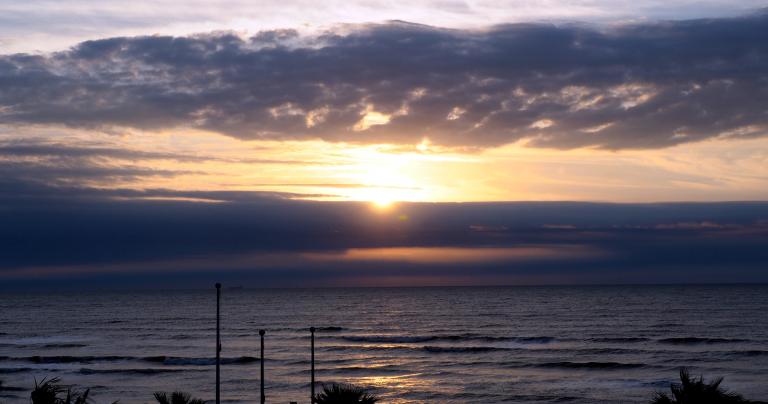There’s something magical about a new year.
On one hand, our calendrical system is mostly arbitrary – there’s nothing special about January 1. On the other hand, finishing the liminal period that is Solstice to whenever you go back to work or school (for those who get to participate in “the holidays” that is), hanging new calendars, and trying to remember to write the correct year (a bigger problem back in the days when people wrote checks on a regular basis) reminds us that something has changed – even if we aren’t sure exactly what it is.
I’ve written about New Year’s resolutions in the past. There’s a reason why they usually fail. But sometimes we use a new year to start something we really do want to do. We’ve been thinking about it, considering it, and meditating on it. The new calendar year is just what we need to shift from thought into action.
You’re not a beginner anymore. You’re ready to explore the world of Gods and magic in more depth, not because someone tells you “you should” but because you want to. Something deep inside whispers that this will be meaningful and helpful, both now and in the years to come.
Here are eight ways to make your Paganism stronger this year.
1. Commit to daily spiritual practice
If you’ve been reading this blog for any time at all, you knew this was coming. There simply is no substitute for daily spiritual practice. It can take many forms: meditation and prayer are most common, and most helpful. So is following the sun and the moon through their cycles, visualization, energy work, and other practices.
The main thing is to do something every day that reinforces your core beliefs and values. Start small. Pick one thing and do it every day. If you miss a day, acknowledge it but pick it up again the next day. It doesn’t have to take long: one minute every day is better than 30 minutes some days and nothing other days.
Daily spiritual practice isn’t sexy or edgy or witchy. But nothing else you can do will have a bigger impact on strengthening your Paganism.
2. Make weekly offerings
Some people make daily offerings. Others make them monthly. I’ve found weekly works well for me, although what started with one set of weekly offerings is now four. I make offerings to the Morrigan on Sunday evenings, to my ancestors on Mondays, to Cernunnos on Wednesday, and to someone I don’t mention publicly (so far, anyway) on Tuesdays.
What should you offer? What they want. What’s of value. What you have. Wine, beer, and spirits are traditional offerings. So is food. Clean water is almost always an acceptable offering, especially if that’s all you have. But remember the laws of hospitality – don’t offer water to your guests if you’re drinking wine yourself.
Offerings aren’t bribes – as though a God could be bribed with a shot of whiskey. They’re a demonstration of reciprocity: I give so that you may give, so that I may give again. And they go a long way toward building lasting spiritual relationships.
3. Keep a spiritual journal
How did your spiritual practice go last week? Or last month? What’s working well for you? What’s not working at all? How did your last magical working go? Do you even remember what it was? All of this is easier if you write it down as you do it.
Journaling is a helpful spiritual practice in any religion. It’s especially helpful in Paganism, where even those of us in established traditions are still largely figuring things out as we go.
I don’t write in my journal every day, and some of what I would otherwise write in a journal ends up here on the blog. But I’ve kept regular journals for the past 22 years, and irregular journals for 10 years or so before that. They make it easy to look back and see what worked, what didn’t work, and how far I’ve come since that night when I realized it was time to get serious about my spiritual work.
4. Learn a new magical system
I know, not all Pagans practice magic. But for those of us who do, the key word is “practice.” The more you practice, the better you get at it, and the better you’ll be able to draw on it when you really need it.
Diving deeply into one magical system is a good idea. But unless you’re obsessed with magic, sooner or later you reach a plateau where you know enough to do most things you need magic for (and where you know when you’re better off with mundane effort). Practice magic on an as-needed basis and you may find yourself falling out of practice. So either start a graduate-level study of your chosen system, or learn a new system.
Chaos magic is my go-to system for operative magic. But when I needed something very specific last summer, I drew from traditional witchcraft. I think I’m going to be doing that more frequently.
When I reviewed Besom, Stang & Sword I admitted I didn’t know much about the subject. But I learned quite a bit from the book, and some people with far more expertise in traditional witchcraft have had very good things to say about it. I think it will serve as a good guide.
Needless to say, simply reading a book on magic doesn’t help much. Read the book, then do the work.
5. Read (or re-read) a foundational book in your tradition
The Pagan revival is far enough along that there are multiple books in most traditions readily available. By now you’ve read a few of them. But perhaps there are some you haven’t. Even if you already know what they teach, reading multiple foundational books provides different perspectives, and it helps you understand why others in your tradition do things somewhat differently.
Or perhaps you read one book before you were ready for it and didn’t quite understand it. I was that way with The Book of Druidry by Ross Nichols. I read it in 2002 when I was just getting serious about Druidry and I really struggled with it. I read it again in 2011 (after I had completed the OBOD course) and it made much more sense the second time.
6. Read new scholarship in your tradition
Our many Pagan traditions lost so much when Christianity became the dominant religion in the West. Slowly, gradually, and intermittently that’s being recovered.
Most of this recovery won’t be found under Paganism or even under religion. Most of it is in history, archaeology, and anthropology. Some is in literature, linguistics, or psychology. If you only read Pagan books, your Paganism won’t be as strong as it otherwise would be. Two years ago I wrote Five Non-Pagan Books For Pagans – if you can’t find any new scholarship, try one of these.
7. Lead a group ritual
Want to really grow? Want to take your Paganism to the next level? Step up and lead a group ritual. There is nothing that will motivate you to learn what to do and how to do it better than knowing you’re going to be leading this year’s Beltane circle.
Volunteer to lead a ritual for your CUUPS or other eclectic Pagan group. Call your local Pagan friends and tell them you’re leading a full moon ritual in your back yard. If nothing else, reserve a spot in a local public park and advertise it. You may get three people or you may get fifty. Either way you’ll learn something valuable.
On Sunday I wrote Leading Public Rituals For Mixed Pagan Groups. That’s a good guide for how to do it. There’s a section on ritual in The Path of Paganism. And if you search for ritual on this blog you’ll find all sorts of resources.
I know – some people just aren’t interested in leading public ritual. But more people can do it than think they can.
And I guarantee you’ll learn something you could learn no other way.
8. Attend a Pagan conference or retreat
It’s getting to be Pagan convention season. The luster has worn off of Pantheacon, and it’s an expensive trip for anyone who doesn’t live in the Bay Area (though if you can go I still recommend it). But there are many other choices, and there’s probably at least one within driving distance of you.
The hotel-based conferences are relatively expensive, and the camping-based retreats can be physically challenging. Find what works for you. If nothing else go hang out at your local Pagan Pride Day. The main thing is to go talk to other Pagans face to face. Hear what they’re doing, what challenges they’re facing, and how they’re overcoming them. And share your experiences with them.
I have three gatherings on my 2019 calendar.
February 8-10 I’ll be at the ADF Texas Imbolc Retreat in Mountain Home, Texas.
March 21-24 I’ll be one of the featured presenters at the Sacred Space Conference in Hunt Valley, Maryland.
July 18-21 I’ll be at Mystic South in Atlanta, Georgia. I’ve submitted two workshop proposals, but the programming committee hasn’t made their choices yet. I’ll be there whether I’m on the program or not. I can’t say enough good things about Mystic South, but I try.
For another perspective on how to strengthen your Paganism, see 9 Ways to Witch Better in 2019 by Courtney Weber.




















